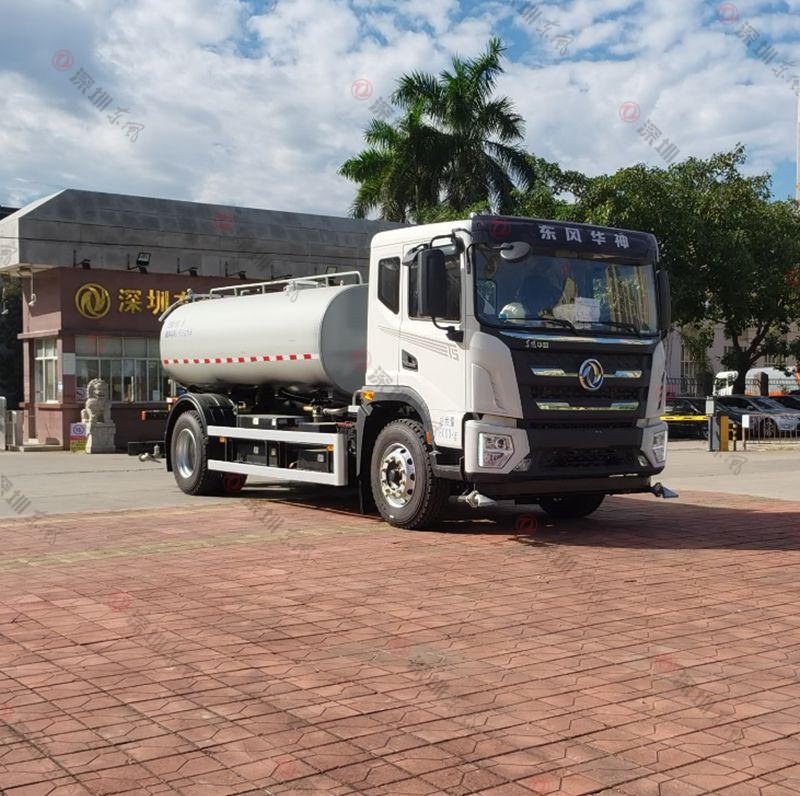In today’s rapidly expanding cities, keeping public areas clean and controlling dust pollution has become a constant challenge. From congested urban roads to busy construction zones, airborne particles are not only a nuisance but also pose serious health and environmental risks. Among the key solutions leading the way are water trucks — versatile, efficient, and eco-friendly vehicles dedicated to dust suppression and street cleaning operations.

Water trucks play a vital role in improving air quality, road cleanliness, and overall urban aesthetics. Equipped with high-capacity water tanks and advanced spraying systems, these vehicles effectively control dust, remove road debris, and assist in various municipal operations. Whether working on road construction sites, industrial zones, mining areas, or public streets, water trucks ensure safe, clean, and hygienic environments for residents and workers alike.
Dust suppression on construction sites, quarries, and unpaved roads
Street cleaning in residential, commercial, and industrial areas
Road cooling and surface cleaning during hot seasons
Firefighting assistance in emergency situations
Watering green belts, parks, and roadside vegetation
Moisture control for soil compaction in infrastructure projects
The versatility of water trucks lies in their diverse configurations, designed to meet different operational requirements. Each type of water truck is tailored for specific environments, ranging from congested city streets to remote construction zones.
Standard Water Spraying Trucks: Ideal for urban road cleaning and dust suppression.
Articulated Water Tank Trucks: Designed for mining sites and rough terrain applications.
Compact Street Washer Trucks: Perfect for narrow streets, parks, and pedestrian areas.
Dust Suppression Trucks: Equipped with fog mist sprayers and cannons for large-scale dust control projects.
Multi-function Water Trucks: Combines dust suppression, road cleaning, and firefighting capabilities in one vehicle.
Water trucks utilize advanced spraying systems to distribute water efficiently and effectively over roads, construction sites, and public areas. These systems typically feature high-pressure nozzles, spray bars, mist cannons, and water cannons, enabling operators to control the spray pattern, intensity, and coverage area based on the specific application needs.
Rear and Side Spray Bars: Ideal for road and sidewalk cleaning operations.
High-Pressure Water Cannons: Effective for firefighting and washing large surfaces.
Misting Systems: Used for fine dust suppression at industrial and mining sites.
Water Recycling Systems: Found in modern water trucks to reduce water waste and promote sustainability.
Effective dust suppression and street cleaning require careful operational planning to optimize resource use and reduce environmental impact. Municipalities and contractors should consider traffic patterns, peak hours, and weather conditions when scheduling water truck operations.
Deploy water trucks during early morning or late evening to minimize traffic disruption.
Increase frequency during dry seasons and construction surges.
Prioritize high-traffic roads, construction zones, and areas prone to dust accumulation.
Utilize water recycling trucks in water-scarce regions to conserve resources.
Implement GPS-based fleet management to track vehicle routes and optimize scheduling.
The advantages of integrating water trucks into municipal and industrial operations extend far beyond surface cleaning. By reducing airborne particulates, water spraying trucks significantly improve air quality, enhance road safety, and contribute to environmental protection initiatives.
Improved Air Quality: Suppresses dust particles, reducing respiratory hazards.
Enhanced Road Safety: Clears debris and reduces glare caused by dry dust layers on roads.
Eco-Friendly Operations: Water-based dust suppression minimizes the need for chemical agents.
Cost-Effective Maintenance: Extends the lifespan of urban infrastructure by preventing dust accumulation.
Support for Sustainable Development: Cleaner air and streets contribute to healthier, more livable urban spaces.
With increasing demand for eco-friendly and efficient municipal services, water truck technology is rapidly advancing. Modern water spraying trucks are now equipped with automated control systems, telematics, and eco-friendly water recycling solutions.
Smart Water Spray Control: Automated adjustment of spray pressure and direction based on dust levels and traffic conditions.
Electric-Powered Water Trucks: Emission-free vehicles for green city operations.
High-Capacity Dust Suppression Vehicles: Designed for large construction sites, ports, and mining operations.
Telematics and Remote Monitoring: Real-time vehicle tracking and water consumption monitoring for efficient fleet management.
Water trucks have become indispensable tools in modern urban and industrial sanitation management. Their crucial role in dust suppression, road cleaning, and environmental protection contributes to safer, cleaner, and more sustainable cities. As urbanization and environmental concerns continue to rise, investing in advanced water truck technology and infrastructure is essential for ensuring public health and maintaining high urban living standards.
A water truck is a specialized vehicle equipped with a large tank designed to transport and spray water over large areas. Common applications include dust control on construction sites, road cleaning, firefighting support, and agricultural irrigation in remote areas.
Water truck capacities typically range from 2,000 to over 20,000 liters (or 500 to 5,000 gallons), depending on the application. Heavy-duty models for mining and large construction projects often feature larger tanks, while compact urban street washers use smaller capacities for maneuverability.
The most common types include standard water spraying trucks, dust suppression trucks with fog mist systems, articulated tank trucks for rugged terrain, and compact street washer trucks for city use. Multi-function water trucks are also available, combining several capabilities in a single vehicle.
Consider factors such as tank capacity, material durability, spray system configuration (nozzles, cannons, mist systems), pump performance, and additional functions like water recycling or firefighting capability. Compliance with local licensing and safety regulations is also essential.
Yes, most jurisdictions require a commercial or heavy vehicle driver’s license to operate water trucks, especially those exceeding certain weight thresholds. It's advisable to check local transportation and safety regulations before operation.